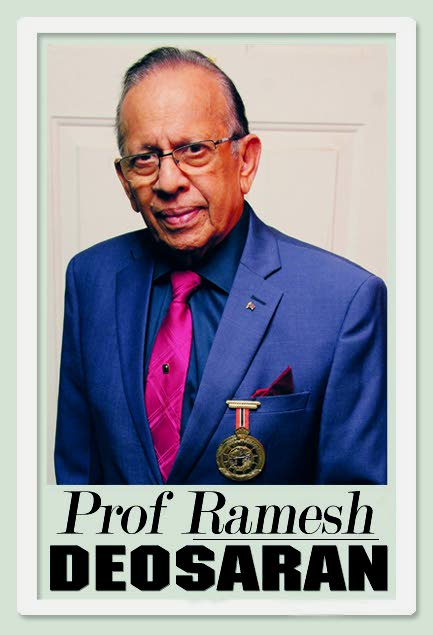The AG, DPP and politics

As we head into election year, the political pot could not be more heated – one sizzling political controversy after another, some with serious constitutional and judicial implications.
The regularly-headlined “missing money and documentation” controversy between Auditor General Jaiwantie Ramdass, Minister of Finance Colm Imbert and Attorney General Reginald Armour, SC, will likely test the Constitution. Health Minister Terrence Deyalsingh may welcome the breathing space.
Last Wednesday evening, while listening to AG Armour commenting on the controversy in a televised interview, the person next to me asked: “Is he independent?” Just three words but with firecracker impact.
I cautiously replied, “It depends on whom you ask.” But indeed, it is a billion-dollar question linked to Section 4 of the Constitution where our rights and freedoms are proudly listed.
The Constitution states: “The Attorney General shall, subject to section 79, be responsible for the administration of legal affairs in TT and legal proceedings for and against the State shall be taken (a) in the case of civil proceedings in the name of the Attorney General (b) in the case of criminal proceedings, in the name of the State.”
So the AG is doing what the Constitution now allows.
It is an office with heavy responsibilities requiring great care, diligence and of course, fairness. The AG, appointed by the PM, is a sworn member of cabinet and, according to the Westminster tradition, if he or she has a fundamental disagreement with cabinet, he or she must resign. The AG supports and advises the cabinet.
Now generally, apart from SC Armour, the matter of the “independence” of the AG has attracted much attention, much of it calling for the “depolitisation” of the office.
For example, the 1987 Hyatali Constitution Commission noted: “The Attorney General is the only Minister specifically mentioned in the Constitution and his duties have raised the question whether they trespass upon or are in conflict with the duties or the independence of the Director of Public Prosecutions.”
A reasonable observation given what the Constitution states about the DPP: “The Director of Public Prosecutions shall have power in any case in which he considers it fit and proper to do so (a) to institute and undertake criminal proceedings against any person before any court…(b) to takeover and continue any such criminal proceedings that may have been instituted by any other person or authority (c) to discontinue at any stage before judgement is delivered in any such criminal proceedings instituted or undertaken by himself or any other person or authority.”
Apparently recognising possible “trespassing,” the then government published a draft constitution (2006) stating the same DPP functions as in the current constitution but with a modification: “The Director of Public Prosecutions shall discharge his functions under this Constitution and any other law under the general superintendence of the Attorney General.” How “independent” would this make the DPP?
To cut through doubts, the 1974 Wooding Constitution Commission Report earlier proposed that the president, not the PM, appoint the AG who will not only independently assume prosecutorial functions but also be “legal adviser to the President, Ombudsman, Auditor General, Service Commissions.”
That is, an AG away from possible political influence and perceptions of political bias but empowered to advise constitutionally-independent officials.
Interestingly, in his minority report, the very conservative Wooding Commission member, attorney Mitra Sinanan, agreed and recommended that the President “in his own deliberate judgment after consultation with the prime minister and leader of the opposition” should appoint the Attorney General. (January 1974).
The Wooding Commission further proposed a Minister of Legal Affairs appointed by the PM to advise the government and also be in charge of conducting civil litigation on behalf of the State. To help justify their recommendations, the strongly-talented Commission made this profound statement: “This division of offices should strengthen public confidence in the impartiality of the administration of the law in its executive aspects.”
Their conclusion gently brings us to one of the soft but sacred pillars of a healthy democracy. That is public confidence in state institutions, the judiciary and the administration of justice. This is an opportunity, too, for those who wish to retain this or that state or political institution, to help the discourse by saying why.
Perceptions are stubborn things too, especially when entering a general election, another challenge for the advisory committee. Such controversies, as unpleasant as they may be, also provide us with opportunities to courageously improve our performance and the institutions which govern us.

Comments
"The AG, DPP and politics"